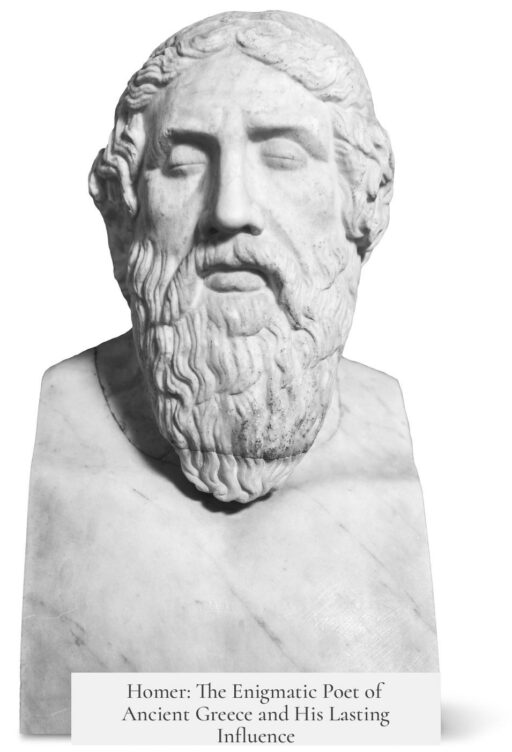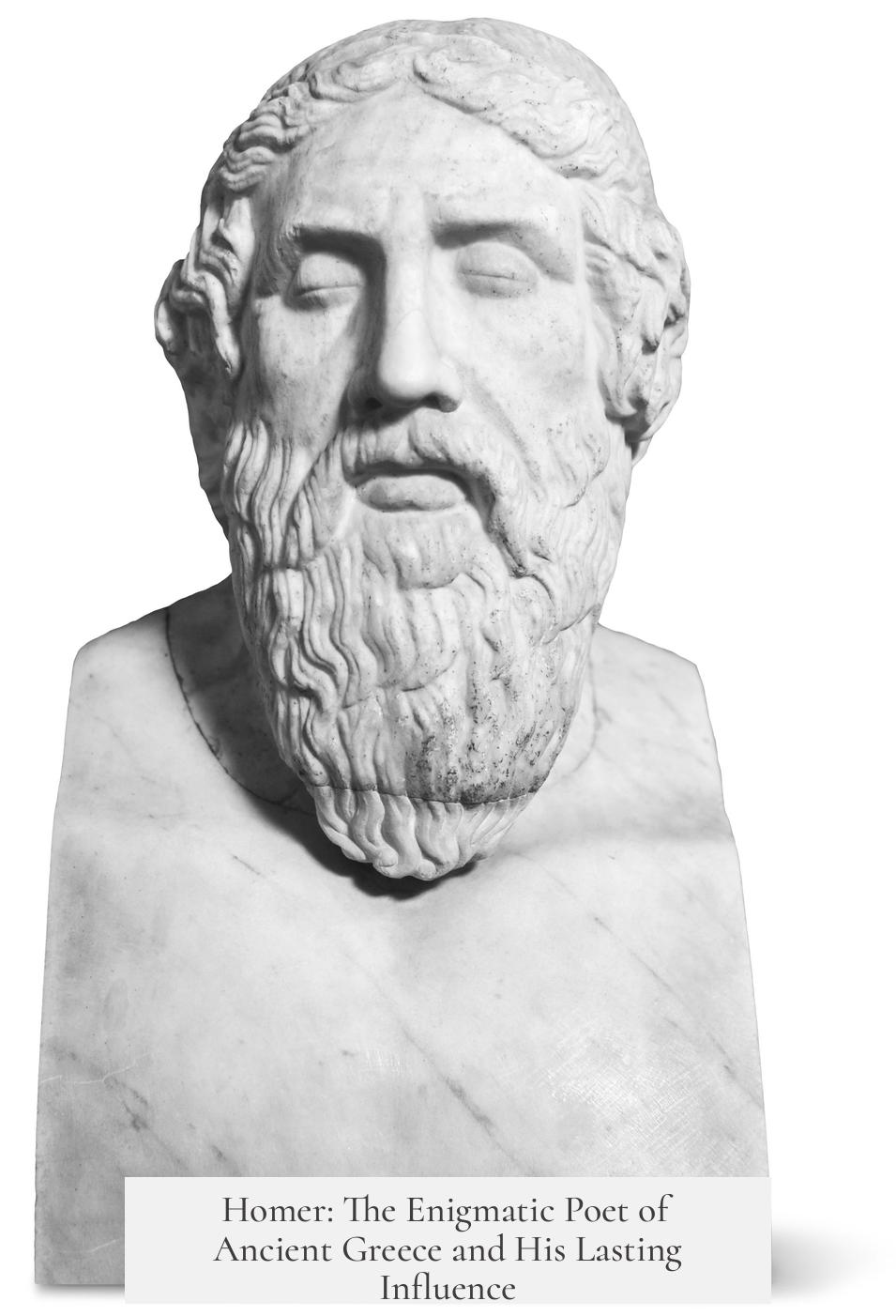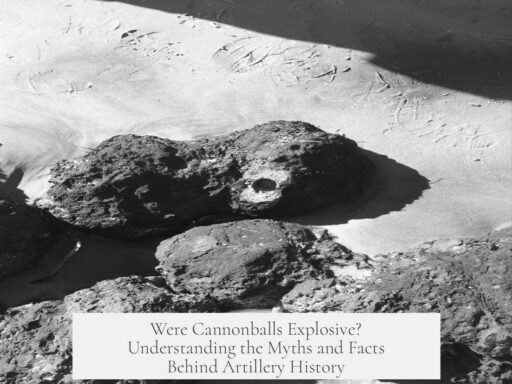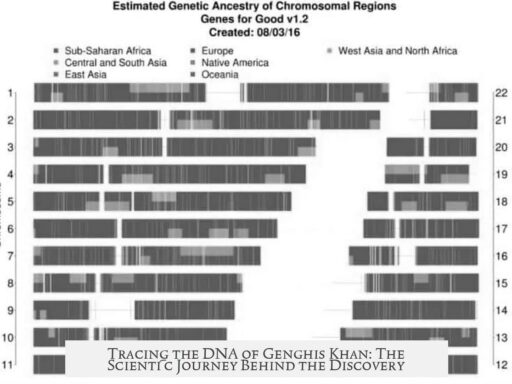Homer is traditionally credited as the author of the ancient Greek epics, the Iliad and the Odyssey, but his true identity remains unknown and debated among scholars.
The primary challenge in defining who Homer was lies in the absence of reliable historical data. The Homeric epics themselves contain no autobiographical details. Unlike some ancient poets, Homer’s works offer no direct clues about his life, origin, or personality.
The two epics are the only texts from the period linked to Homer. This lack of supporting contemporary documentation leaves his biography entirely speculative.
Adding to the uncertainty is the linguistic analysis of the epics. The Greek dialect in which the poems are composed is inconsistent, showing a mix of dialects rather than a uniform language style typical of a single geographic area or time. This linguistic patchwork complicates efforts to associate the works with a single, identifiable historical figure named Homer.
Ancient Greek writers, hundreds of years after the epics first emerged, created various stories about Homer. These stories often describe him as blind, impoverished, and living in a specific era, but none are verifiable through historical evidence. Such accounts are best understood as myths that grew around the revered figure rather than factual records.
Homer’s cultural importance to the Greeks is significant. His epics were central to Greek education and identity formation. Due to this, Homer became a quasi-mythical figure, almost legendary in stature. Ironically, despite this importance, even the ancient Greeks lacked reliable knowledge about his life or origins. There was no maintained local tradition or historical document that accurately recorded his biography.
The question of Homer’s very existence as a single individual has drawn scholarly doubt. It is possible he never existed as a single person. Instead, he might represent a tradition of oral poets who created and refined these epic stories over time. The poems likely evolved through oral transmission before being fixed into written text centuries later.
This oral tradition suggests multiple contributors gradually shaped the epics. The name “Homer” might have been assigned later to a collective body of work or to a symbolic founder of this oral poetry tradition. This theory explains the linguistic inconsistencies and the absence of concrete historical information.
Alternative theories propose that the epics were composed by multiple poets, either working together or through successive performances and edits. The eventual canonical versions were crystallized long after the original performances. Admirers seeking a single, divinely inspired genius created the figure of Homer as the author.
Despite uncertainties, modern scholars use “Homer” as a practical label for the author or authors of the Iliad and the Odyssey. This convention simplifies references while acknowledging that “Homer” likely does not correspond to any known historical poet. The name serves as a symbol for the epic tradition rather than a verified person.
In summary, the identity of Homer remains a mystery because of the following reasons:
- No autobiographical information exists within the Homeric epics.
- The Greek dialects used in the epics are inconsistent, complicating pinpointing a single author.
- Ancient stories of Homer’s life are later inventions and mythic embellishments without historical backing.
- Homer likely became mythologized due to the epics’ foundational role in Greek culture.
- Scholars question if a single person named Homer wrote the epics or if they represent a collective oral tradition.
- The epics probably evolved through multiple contributors over several generations.
- The name “Homer” is now a conventional shorthand for the unknown author(s) of the epics.
This unresolved question about Homer’s existence and identity reflects the complexities of oral traditions and ancient literary history. It also highlights how cultural reverence can transform historical uncertainty into legendary narrative.
Who was Homer? The Mystery Behind the Legend
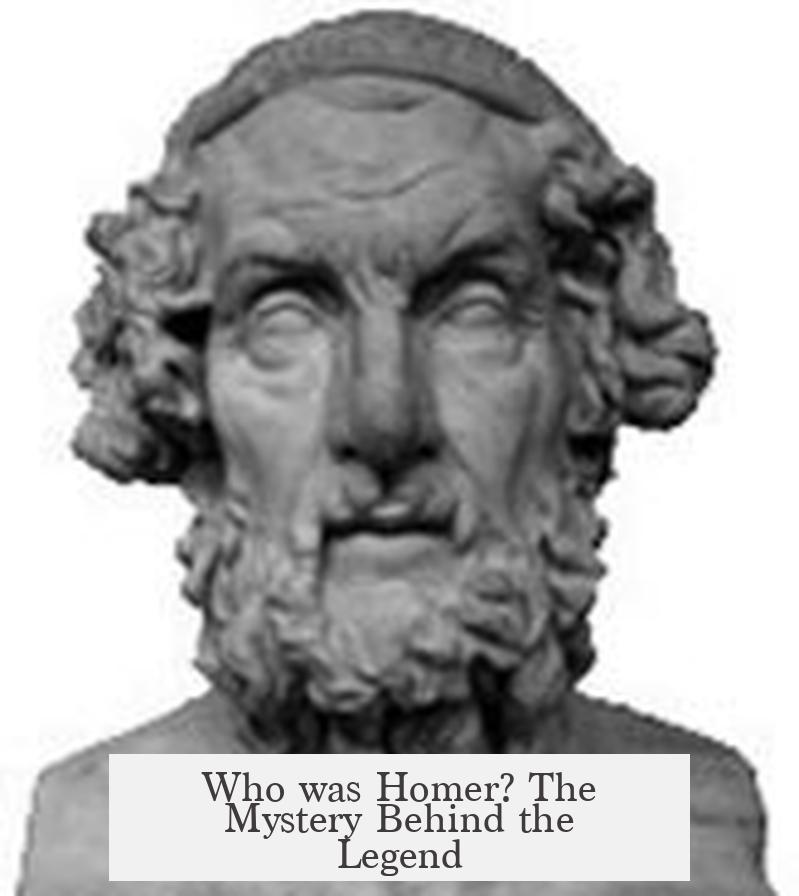
Simply put, we don’t know. That’s the most straightforward answer to the question of who Homer was. Despite being one of the foundational figures in Western literature, Homer remains an enigma wrapped in ancient verses. The famous epics—the Iliad and the Odyssey—are our sole written sources from roughly the time they were composed, but these poems don’t offer any personal details about their creator.
Unlike other ancient poets like Hesiod, who drops hints about his life between the lines, Homer keeps mum. Heself disappears in the very works attributed to him. It almost feels like a cosmic joke: the man who shaped Greek culture and identity leaves no trail about himself.
The Puzzle of Language: Dialects and Discrepancies
Here’s a linguistic twist: the Greek language used in the Homeric epics isn’t consistent. Scholars have noticed multiple dialects mixed within the texts. Some parts lean on Ionic Greek, others on Aeolic or even more archaic forms. This patchwork confounds the idea of linking Homer to a single geographic region or historical era.
So, if you thought you’d find a clear fingerprint of Homer’s native tongue—think again. This mix throws a wrench into the gears of identifying a historical poet tied solely to one place or time. It suggests a longer evolution, possibly involving many voices.
Legends vs. Facts: Myths About Homer’s Life
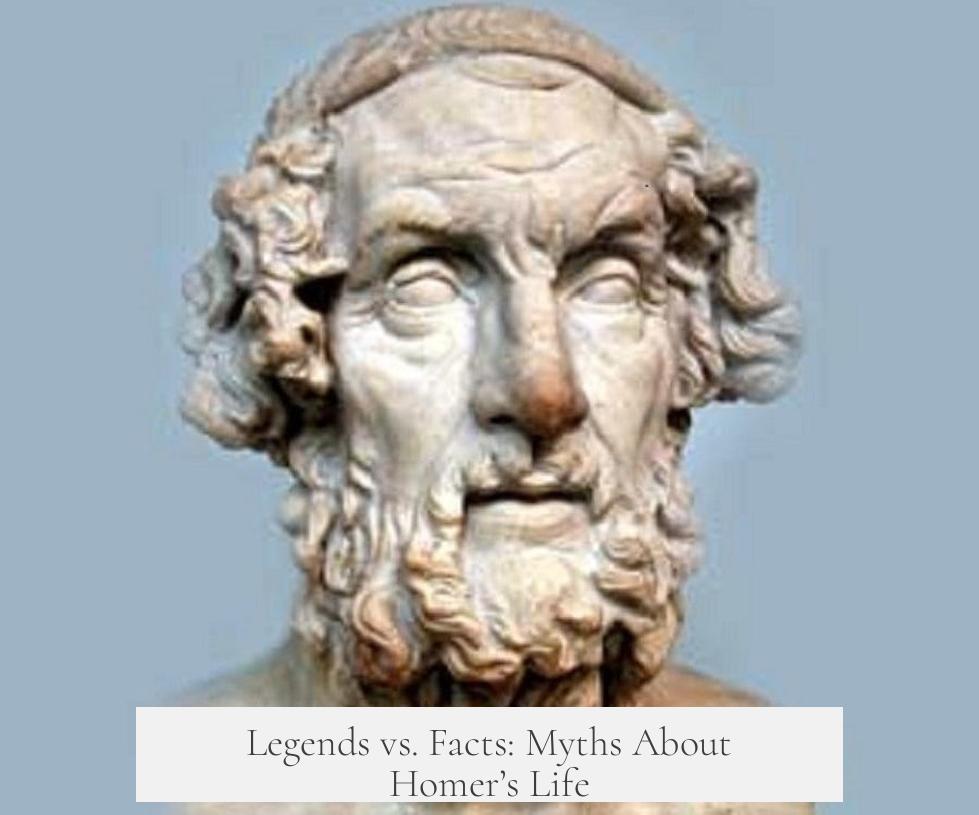
Fast forward a few centuries past Homer’s era, later Greeks compiled colorful tales about the poet. He was said to be blind, poor, a wanderer who sang epic poetry for coin. These stories grip the imagination but don’t rest on solid historical ground. They reflect more about what later Greeks wanted from their cultural icon than what really happened.
Would a blind bard epic enough to shape civilization be too good a story to pass up? Probably. While these myths immortalized Homer’s name, they also mask the real uncertainties surrounding him.
Homer and Greek Identity: The Myth Makers
Homer’s role in Greek education and culture was enormous. His epics formed the backbone of Greek identity, instilling values, history, and myth. It’s no wonder ancient thinkers transformed Homer into a near-mythical figure who had to be singular, unique, and inspired. Yet, ironically, no local tradition or historical records confirm any facts about Homer’s actual existence.
The poet became bigger than life, a symbol rather than a flesh-and-blood person. Did the Greeks know this? Or was it simply convenient to accept the myth as truth? Either way, Homer is less a man and more a cultural force carved from mystery.
Did Homer Even Exist? The Question of Authorship
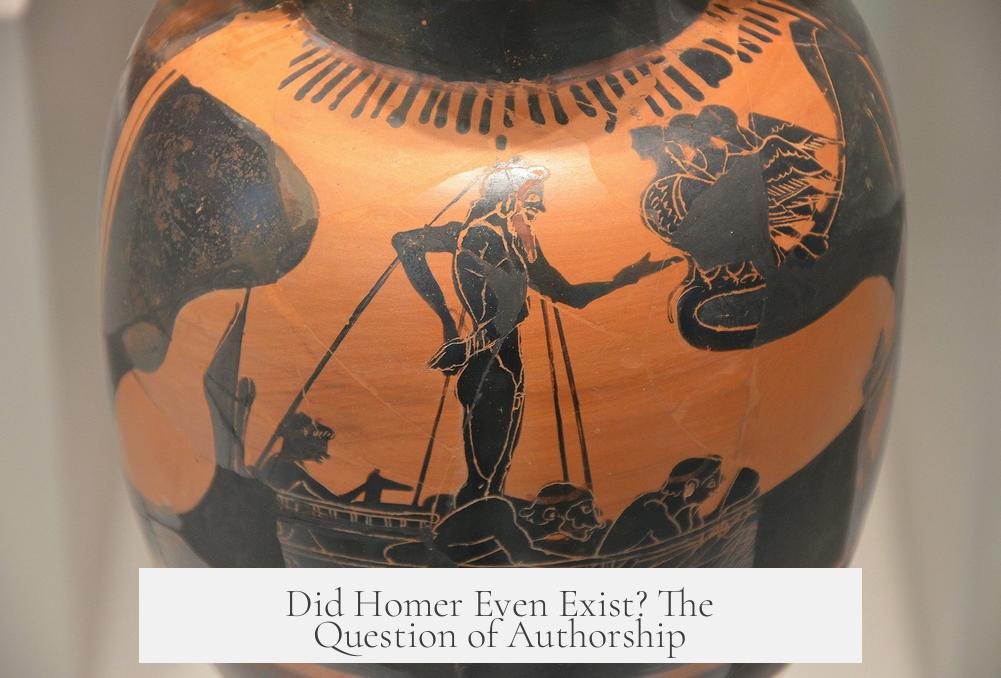
Here’s where the plot thickens: some scholars doubt Homer ever existed as a single person. The epics likely grew from oral traditions—a long chain of storytellers who polished and passed down tales over centuries. The fixed written versions we have emerged far later, shaped by many hands.
So, the name “Homer” may simply be a convenient label. Instead of a solitary genius, Homer could represent a community of poets or even a legendary figure invented to personify a diverse body of epic storytelling. That’s like crediting “The Beatles” for a song written by just one member—complicated, isn’t it?
A Collective Genius or a Lone Poet?
Alternative theories suggest multiple poets created what we now call Homeric epics. These poets might have slowly built upon each other’s work—adding, editing, refining—until classical Greece inherited an artistic masterpiece attributed retrospectively to one figure. The name Homer provides unity and prestige to these timeless works, making it easier for subsequent generations to revere the epics.
The idea that a single composer penned these sprawling epics is less likely than a tradition melding many creative voices. This is a fascinating twist that challenges our usual notion of authorship.
Modern Scholarship: Using Homer as a Convenient Shorthand
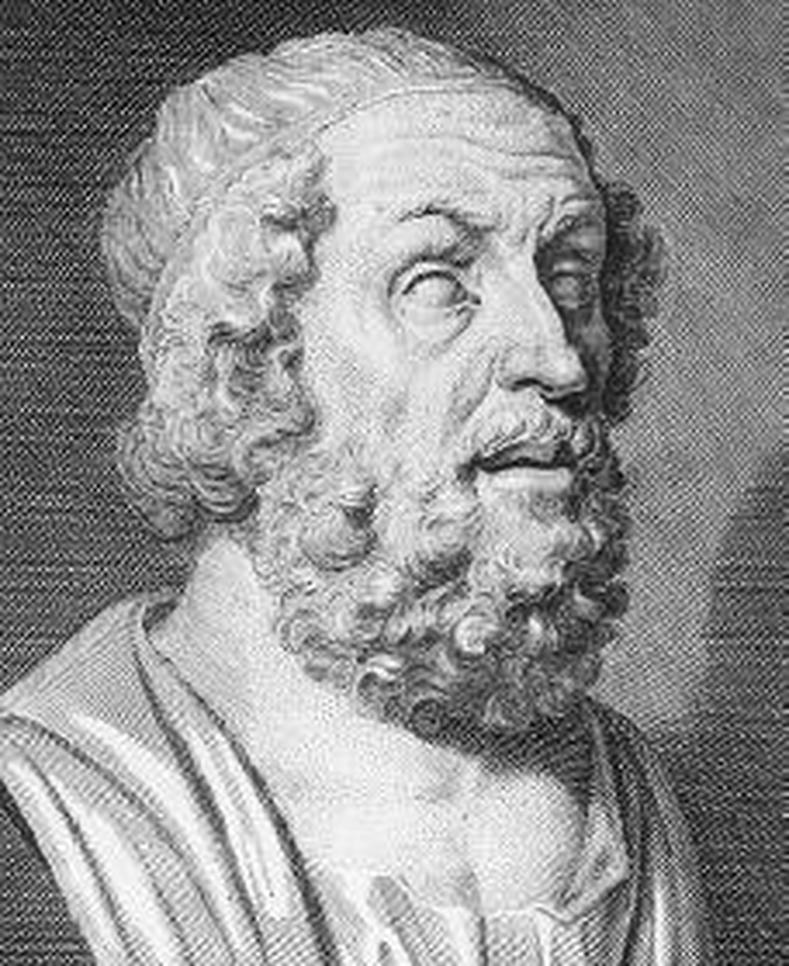
Today, most scholars are practical about this mystery. They use the name “Homer” as a shorthand for the author(s) of these epics. It’s a nod to a long tradition, even though it might not reflect a real historical individual. This approach makes academic discussion smoother without pretending we know more than we do.
So, when you read about “Homer,” remember you’re engaging with a symbol—an ancient brand name for an epic storytelling tradition rather than a bio-documented person.
Wrapping It Up: Why the Mystery Matters
The question “Who was Homer?” isn’t just a trivia matter. It challenges how we perceive authorship, tradition, and cultural memory. It asks us to consider the value of oral traditions, the evolution of stories, and how myths form around cultural icons.
In the end, Homer may remain unknowable. But his epics continue to inspire, teach, and scare us into respecting the power of storytelling. Maybe it doesn’t matter if Homer was one man, many men, or a legend born from tales told around ancient fires. What matters is that the Iliad and the Odyssey keep echoing through time—bearing witness to a mysterious genius whose name became immortal.
